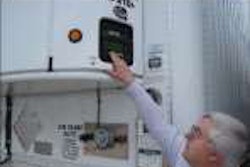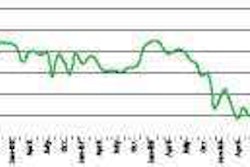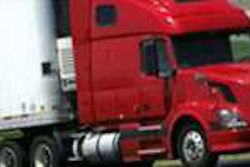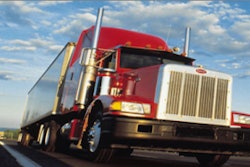
Michelin multiplies the benefits of its X One super single
My friend and I have a running joke about state lotteries. The crux of the joke is pretty simple: He can’t be bothered to buy a ticket unless the payout is $67 million or so. Sometimes I’ll ask him if he’s getting a ticket, and he’ll say, “Nah. It’s only up to $3 million this week.”
I don’t know why, but nobody thinks of a million as a lot anymore. Maybe it’s because you can’t turn on the news anymore without hearing the terms “billions” and even “trillions” thrown around constantly. But the fact is 1 million is a huge number. Michelin is one company that understands the power of a million and how that huge number can influence society, business, technology and the environment if applied properly. Recently, the company held a press conference and customer appreciation event to commemorate the sale of its one millionth X-One super single tire.
If you sell a million of anything, that’s news, of course; why do you think platinum records were invented? But the Michelin folks didn’t simply fly us in so they could throw sales figures at us. They wanted to talk in a broader context about what the sales and service of those million tires actually mean – not just to the trucking industry, but to the entire country and world as well.
Reflecting on the X-One’s 10-year history, Michelin North America’s vice president of marketing, Ted Becker, noted that the concept of replacing tandem tires on a tractor or trailer was controversial at first. “But we were convinced,” Becker says, “that if we could find a way to make it work, we’d be able to improve truck weight, rolling resistance and manufacturing materials all at the same time.” It helped that the company had visionary partners such as Alcoa, which designed stronger, lighter rims for the new tires, and Freightliner, which joined forces with Michelin to convince dealers, drivers, fleet managers and owners that the X-One was a winning idea.
A decade later and 1 million tires sold finds Michelin continually refining the product and adding new X-One tire models to its catalog with regularity. But according to Francois Corbin, executive vice president for Michelin North America, the X-One’s impact goes far beyond saving fleets money. Corbin says X-One tires reduce a vehicle’s rolling resistance by 12 percent, which in turn leads to fuel savings between 4 and 10 percent depending upon vehicle spec and application. Extrapolating those numbers out more than 1 million tires leads to some fairly significant results.
Overall, the X-One’s impact has been 63 million gallons of fuel saved over the past decade, Corbin says. Those savings, in turn, have led to a reduction of 639,000 metric tons of CO2 being discharged into the atmosphere – the same as removing 130,000 cars off the road for one year.
And that’s just the big picture. The same math holds true for a medium-sized truck fleet with 1,000 tractors using X-One tires on trailers and in the drive positions, Corbin says. Such a fleet can save 1.7 million gallons of fuel annually – equal to removing 17,000 metric tons of CO2 from the atmosphere and removing 3,400 cars from the road. Additionally, the use of wide single tires can save 700 pounds of weight per truck, allowing fleets to save fuel and add more payload, which means fewer trucks on the road and more impact on the fleet’s bottom line.
Don Baldwin, X-One product manager for Michelin, says all of this is just the beginning. In the future, Baldwin says, Michelin will be concentrating on three fundamental areas of tire development – new rubber compounds that will deliver lower rolling resistance, more efficient tread designs that will allow unprecedented mileage at lower tread depths, and stronger casings that will be lighter yet carry more loads. Clearly this is important work, as tires will be a crucial component in the coming race to develop cleaner, more productive and more efficient trucks. n
JACK ROBERTS is Executive Editor, Trucking of Commercial Carrier Journal. E-mail [email protected] or call (205) 248-1358.











